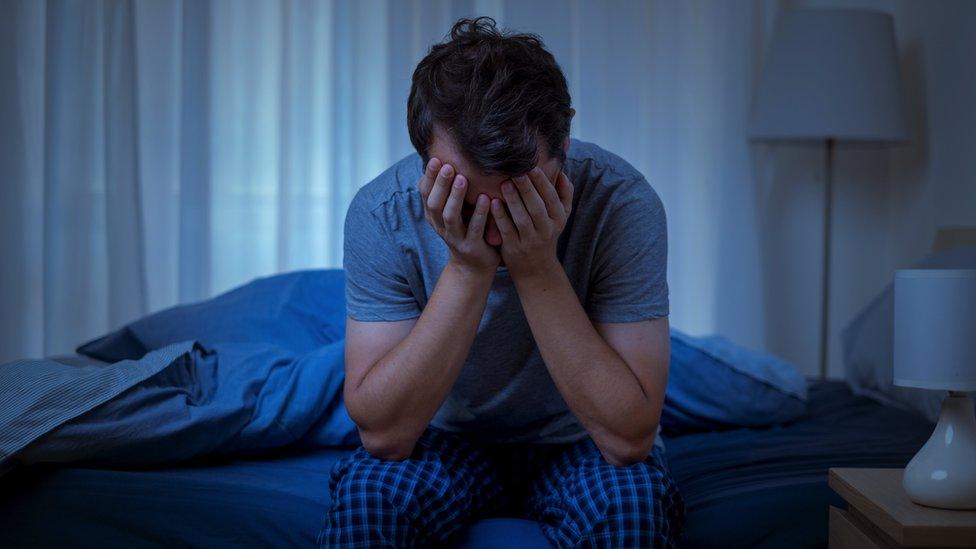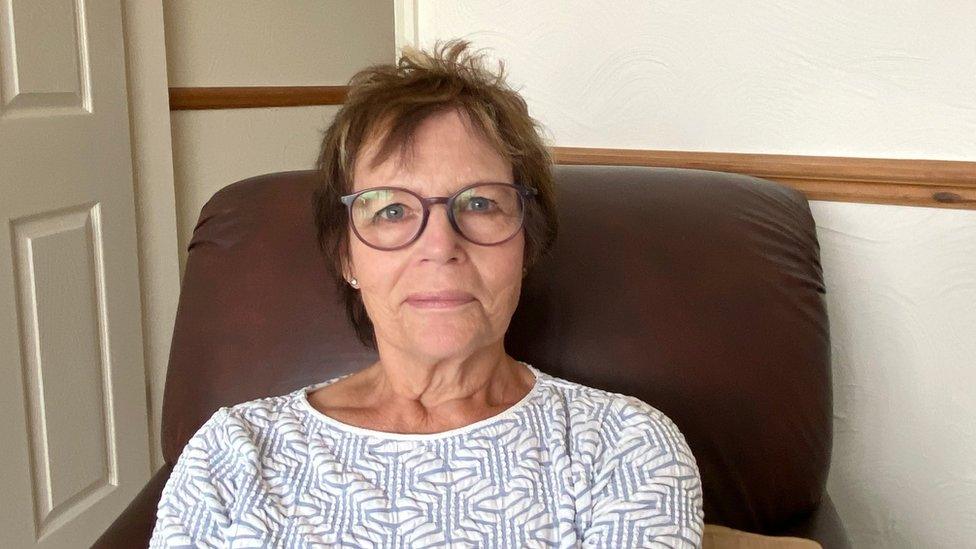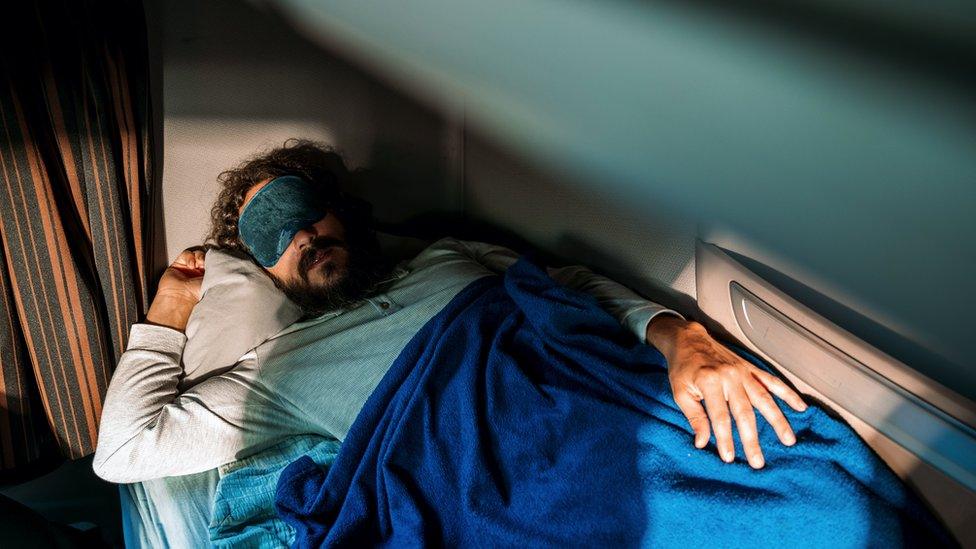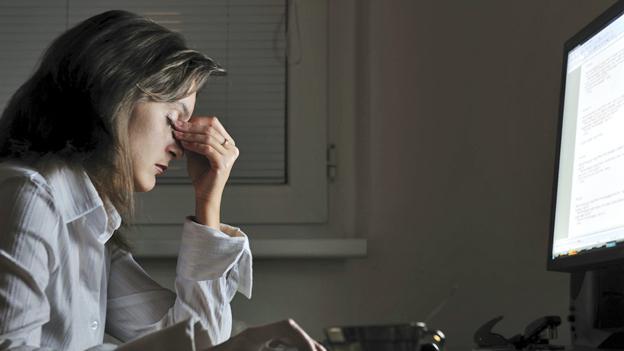Night-shift workers on challenges of sleep and health
- Published

A recent study suggests regular night work significantly disrupts sleep quality
Some healthcare workers are stopping night shifts after "constantly fighting" to stay awake and spending days off recovering.
The night workers found they were not eating properly and their sleep patterns were "all over the place" due to their shifts.
A recent study by the University of Warwick, external found night shifts significantly disrupted sleep quality and circadian rhythms.
BBC News spoke to some about the impact night working had on them.

'Like you're a zombie'

Jane Pittam stopped working night shifts after 28 years because she "was really struggling"
Jane Pittam, 50, is a paramedic and "didn't know what day it was" on her 12-hour night shifts.
Ms Pittam stopped working nights after 28 years because she "was really struggling".
"It's hard on your body to do nights for so long. It gets harder as you get older," she said.
"The job threshold has tripled and nights are now as busy as days - it's absolutely full on for 12 hours."
Ms Pittam's sleep schedule was "completely all over the place", making her feel awful.
"You were surviving on coffee and your crew mates to keep you awake, almost like you're a zombie," she said.
"I'm glad I'm not doing [night shifts] anymore. I feel so much better now."

'A couple of times I almost fell asleep at the wheel'

Andy Houghton says he can now "do things that normal families do" since he stopped working night shifts
Andy Houghton has also stopped working nights, after eight years of palliative care shifts.
"I was getting quite tired and ill with it. I wasn't getting good quality sleep during the day," he said.
"Your body is constantly fighting against going to sleep."
The father-of-two was not eating properly, felt very low in mood and had a "racy" heart.
"I had to be on the ball for driving and making difficult decisions. A couple of times I almost fell asleep at the wheel," he said.
There is "no way" he would go back to working night shifts - "it was very stressful and emotional".
"My quality of life is so much better now. I'm eating better, sleeping better and feeling a lot healthier," he said.
Mr Houghton now sees his children Ava and Rachel more and can "do things that normal families do".

'I feel like I have the whole day free afterwards'

Ingrid Pfeiffer started night shifts again after 40 years, because there wasn't enough work during the day
Nurse Ingrid Pfeiffer, 73, works one night shift a week from 19:30-08:00 at a nursing home.
She started night shifts again after 40 years because there wasn't enough work during the day.
Ms Pfeiffer finds the shifts "less intense than in the day, so there isn't the same amount of pressure".
"I prefer the shifts, because I feel like I have the whole day free afterwards," she said.
The grandmother used to work as a night sister at Warneford hospital, in Warwick, and said "there was a good atmosphere and was quite a laugh at night".
"I wouldn't want to do [more shifts], there's no way. You would be limping along in trying to have a life when you're always tired really," she said.

Sleep quality
A study from the University of Warwick suggests up to 48% of night-shift workers experience a disrupted circadian temperature and their sleep is not in sync with their internal clocks.
Researchers discovered night workers get "less than half" the amount of quality sleep people working day shifts would expect.
Assumptions about adapting to night work were "contradicted" through finding the more years someone works nights, "the more severe the circadian disruption".
Prof Francis Lévi said: "Nearly 20% of the night workers could not even adjust their circadian rhythms during their free time."

Following a regular sleep schedule, even on days off, can help improve sleep quality
The Sleep Foundation recommends limiting daylight by using an eye mask and listening to white noise to help get to sleep during the day.
It says following a regular sleep schedule, even on days off and turning off the phone, can also help people get quality sleep.
The NHS suggests keeping energy up during night shifts by eating small snacks and staying alert by talking to colleagues.

Follow BBC West Midlands on Facebook, external, Twitter, external and Instagram, external. Send your story ideas to: newsonline.westmidlands@bbc.co.uk, external
- Published20 January 2019

- Published21 January 2014

- Published21 January 2014

- Published27 July 2012
